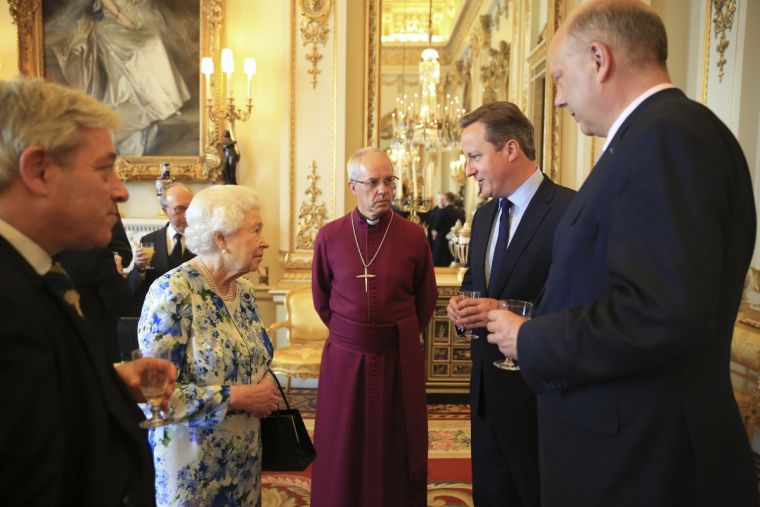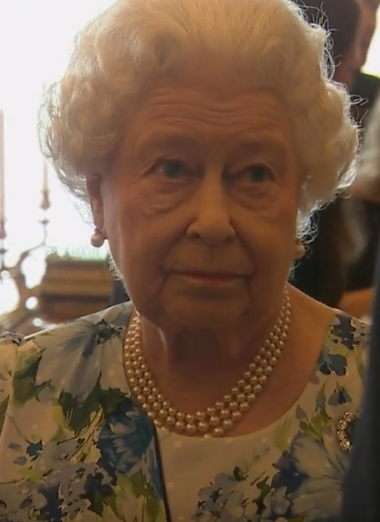The Queen, Cameron and Welby: A metaphor for Church-state relations

Justin Welby's rather stern correction of the Prime Minister at Buckingham Palace on Tuesday was a wonderful moment.
Like an over-excited schoolboy, desperately trying to impress, David Cameron boasted to the Queen that he had some "fantastically corrupt" countries coming to his anti-corruption summit. "Nigeria and Afghanisation – possibly the two most corrupt countries in the world." Ah, to be a fly on the wall when Cameron welcomes the leaders of those particular countries on Thursday.
The Archbishop of Canterbury did not hesitate as he peered over his spectacles and looked straight in front of him in a rather headmaster-like way. "But this particular president is actually not corrupt," he said referring to Nigeria's Muhammed Buhari. "He is trying very hard." Trying so hard, in fact, that he later agreed with Cameron's statement, but the correction was absolutely necessary.
Well informed, highly intelligent and completely devoid of the need to impress, Welby was Cameron's classroom superior in every way.

Beyond the embarrassment for the Prime Minister and the plaudits for the Archbishop it was quite a beautiful picture of the relationship between the two men's institutions.
The Church offered a quiet but firm correction to the mistakes of the state.
The short clip, lasting no more than a few seconds, was an insight into relationships between the Queen, her government and her Church. Cameron was noticeably awkward as he tried to make conversation and impress the Queen. It is his job, after all, to be more impressive than the opposition, and perhaps it just becomes a habit.
Welby has no such need. Those 20 seconds were in many ways a microcosm of how the Church can and should interact with power.
It is somewhat of an outsider among the three pillars of the British constitution. It holds a seat at the table but does not have to deal with the public pressure or symbolic status of the Queen. Neither does it have the scrutiny or need to be re-elected of the government. Liberated from these constraints, it plays a vital role.
But it is not just that the Church is well placed to offer a critical perspective. It often brings an expert perspective.
In this little micro-picture Welby was not just well-briefed by a press officer that morning. Nigeria is an area of particular interest and expertise for the Archbishop, who worked in the oil industry before leading the Church of England's reconciliation work while Canon of Coventry Cathedral in 2002. He has become a sought-after adviser in Nigeria and still works with groups fighting in the north of the country.
Outside of this little metaphor, the Church brings to government direct experience and expertise of life for ordinary people around the country and around the world. The majority of clergy have face-to-face interactions with their parishioners every day. They hear their problems and know their concerns. The same level of ground-level interaction cannot be said for MPs.
With such experience the Church can not only be a critical voice at the table, free from the pressure of government or monarch. It can also be a well-informed voice. Long may that be so.











